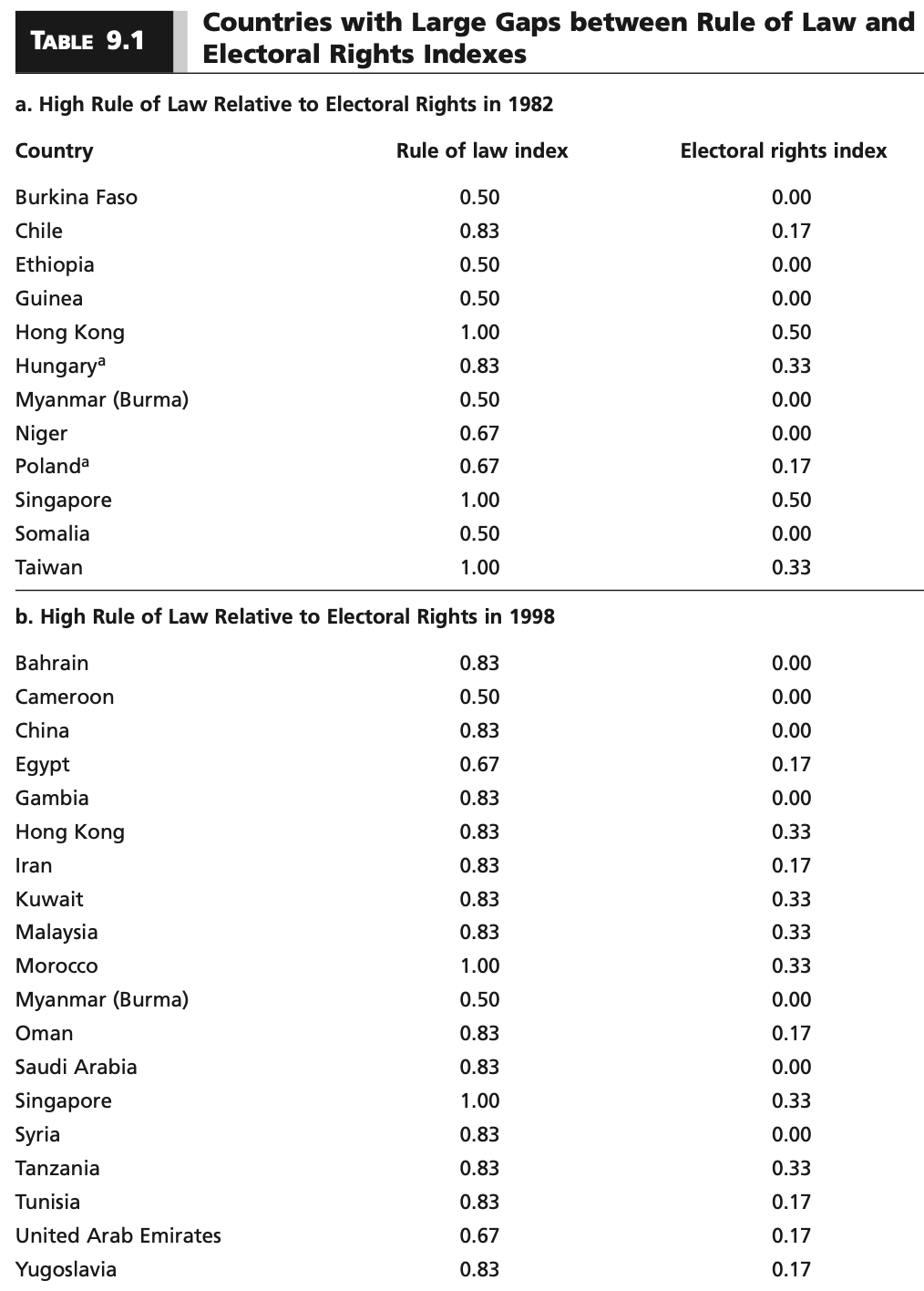
Chapter 8 - Democracy or Dictatorship: Does it Make a Difference?
We live in a society where good outcomes are associated with democracy and poor outcomes with dictatorships. The world is far more complicated than this in reality. We have no strong theoretical reason to anticipate democracies to outperform dictatorships in many cases. While empirical data suggests that democracies create high levels of material well-being for their population, it also suggests that they do not consistently outperform dictatorships.
The Effects of Regime Type on Economic Growth
Are democratic governments more likely than dictatorships to foster economic growth? This topic has spawned a massive body of work in both political science and economics, but you might be shocked to discover that there is still no clear consensus on the answer. There are several opposing viewpoints.
Property Rights
Scholars believe that because democracies are defined by the rule of law and the protection of property rights, they will have better levels of economic growth than dictatorships.
This reasoning may appear to be quite persuasive at first, however, Barro (2000) shows that only parts of the causal chain depicted in Figure 9.1 operate in the real world. When Barro studies data from over a hundred nations between 1960 and 1995, he finds that the rule of law greatly encourages economic growth.
9.1
Some nations, as shown in Table 9.1, have a high rule of law rating but a low voting rights (democracy) index. 1 Typically, dictators rule these countries, which encourage property rights and a stable legal system. Augusto Pinochet, for example, was a tyrant in Chile.

Both dictatorships and democracies, according to Barro's research, have problems with the rule of law and the protection of property rights. As a result, he concludes that "the electoral rights index has no predictive content for the rule of law index" and that promoting democracy on the basis that it will lead to economic growth "sounds nice, but is just untrue."
Chapter 8 - Democracy or Dictatorship: Does it Make a Difference?
We live in a society where good outcomes are associated with democracy and poor outcomes with dictatorships. The world is far more complicated than this in reality. We have no strong theoretical reason to anticipate democracies to outperform dictatorships in many cases. While empirical data suggests that democracies create high levels of material well-being for their population, it also suggests that they do not consistently outperform dictatorships.
The Effects of Regime Type on Economic Growth
Are democratic governments more likely than dictatorships to foster economic growth? This topic has spawned a massive body of work in both political science and economics, but you might be shocked to discover that there is still no clear consensus on the answer. There are several opposing viewpoints.
Property Rights
Scholars believe that because democracies are defined by the rule of law and the protection of property rights, they will have better levels of economic growth than dictatorships.
This reasoning may appear to be quite persuasive at first, however, Barro (2000) shows that only parts of the causal chain depicted in Figure 9.1 operate in the real world. When Barro studies data from over a hundred nations between 1960 and 1995, he finds that the rule of law greatly encourages economic growth.
9.1
Some nations, as shown in Table 9.1, have a high rule of law rating but a low voting rights (democracy) index. 1 Typically, dictators rule these countries, which encourage property rights and a stable legal system. Augusto Pinochet, for example, was a tyrant in Chile.

Both dictatorships and democracies, according to Barro's research, have problems with the rule of law and the protection of property rights. As a result, he concludes that "the electoral rights index has no predictive content for the rule of law index" and that promoting democracy on the basis that it will lead to economic growth "sounds nice, but is just untrue."
 Knowt
Knowt